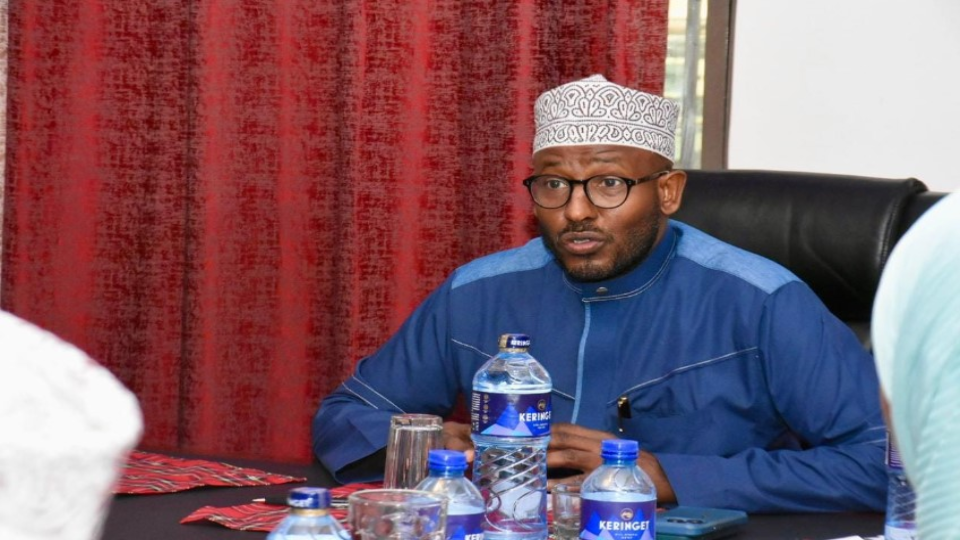CoG Chair Ahmed Abdullahi Questions Auditor General’s Fairness in County Oversight
Wajir Governor and Council of Governors (CoG) Chairperson Ahmed Abdullahi has raised significant concerns about the fairness of the Office of the Auditor General in its oversight of county governments, alleging unequal treatment compared to the national government. Speaking during an interview with a local television station on Wednesday, August 6, 2025, Abdullahi highlighted what he perceives as a bias in the scrutiny applied to counties, suggesting that they face stricter accountability measures than their national counterparts. His remarks come in the wake of a recent Auditor General's report that flagged over 20 counties for spending more than Ksh15 billion on legal fees, domestic travel, and subsistence, raising questions about financial management in devolved units.
Abdullahi acknowledged that both national and county governments face accountability challenges, as they operate as bureaucracies with inherent complexities. However, he argued that counties are disproportionately targeted by oversight institutions, particularly the Office of the Auditor General led by Nancy Gathungu. "There are various reports of accountability issues across both levels of government. Counties are a bureaucracy just like the national government. The auditor general’s office is important, but we feel there is different treatment for county governments," he stated. This perceived disparity, according to Abdullahi, creates an impression of bias that undermines the principles of fairness in governance oversight.
The CoG Chairperson's comments follow a series of audit reports that have spotlighted financial irregularities in county operations. The Auditor General's latest findings pointed to excessive spending in several counties, with Ksh15 billion allocated to areas such as legal fees and travel expenses, prompting concerns about fiscal discipline. Abdullahi’s critique suggests that while counties are held to account for such expenditures, similar scrutiny is not consistently applied to national government entities, leading to a sense of inequity among county leaders.
This is not the first time Abdullahi has clashed with the Auditor General’s office. In July 2025, he led the CoG in opposing a directive to audit county bursary funds, arguing that the process was unconstitutional and lacked transparency. The governors contended that the audit, which targeted six counties, duplicated previous performance reviews and risked disrupting county operations, particularly in supporting vulnerable children through Early Childhood Development and Education (ECDE) programs. Abdullahi emphasized the need for audits to adhere to constitutional timelines and involve consultation with county governments to ensure fairness and collaboration.
Abdullahi’s remarks reflect broader tensions between county governments and national oversight bodies, particularly as counties grapple with financial constraints. During the annual State of Devolution address in July 2025, Abdullahi highlighted the mounting challenge of unpaid bills, which had reached Ksh172.51 billion by the end of the financial year, with Nairobi County alone accounting for Ksh115.69 billion. He attributed these pending bills to delays in fund disbursements from the National Treasury, which have severely hampered county operations and service delivery. Despite these challenges, Abdullahi noted significant progress in devolved sectors such as health, agriculture, water, and transport, underscoring the importance of timely and predictable funding to sustain these gains.
The CoG, under Abdullahi’s leadership, has been vocal in advocating for stronger devolution and equitable treatment of counties. Elected as CoG Chairperson in October 2024, Abdullahi has prioritized regional balance and consensus in his leadership, succeeding Kirinyaga Governor Anne Waiguru. His background in accounting and economics, coupled with his experience as an auditor with Deloitte and Touche and a finance director at Hass Petroleum, has shaped his approach to governance and financial management. As the first governor of Wajir County, Abdullahi has championed transformative initiatives in infrastructure, healthcare, and water resource management, earning him recognition, including the Elder of the Order of the Golden Heart of Kenya.
The ongoing debate over audit fairness highlights deeper issues within Kenya’s devolved system, including the need for stronger internal controls and qualified personnel in county financial management. Recent audits have revealed systemic weaknesses, such as unsupported payments and the employment of unqualified staff in county accounting departments, which have contributed to financial mismanagement. The Institute of Certified Public Accountants of Kenya (ICPAK) has called for counties to adopt accrual accounting to improve financial reporting, a recommendation that remains unheeded in many devolved units still reliant on outdated cash-based systems.
Abdullahi’s call for fair and collaborative oversight underscores the delicate balance between accountability and autonomy in Kenya’s devolved governance structure. As counties continue to play a critical role in delivering essential services, the CoG is pushing for reforms to ensure that oversight mechanisms support, rather than hinder, their operations. The Chairperson’s remarks are likely to spark further discussions on how to harmonize accountability measures across both levels of government, ensuring that counties are not unfairly targeted while maintaining robust financial oversight.


